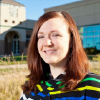Agenda & Session Overviews
9:00 – 9:30 a.m.
Opening Convocation
9:30 – 10:30 a.m.
Keynote
Diversity and inclusion are topics that are increasingly getting attention in education and industry. Although progress has been made, there are still many obstacles to overcome when it comes to inclusive workplaces. In this keynote, Prof. Dr. Jojanneke van der Toorn demonstrates the power of the norm in from this norm and what institutions can do to counteract it.
10:30 – 10:45
Break
10:45 – 11:45
Session Group 1
Diversity, equity, and inclusion (DEI) efforts in organizations are slowly beginning to turn their attention to the issue of neurodiversity, or neurological differences, in their hiring and retention efforts. Universities also have increased awareness and services for students diagnosed under the umbrella term Autism Spectrum Disorder (ASD). However, the current paradigm frames individuals who are neurologically different than the dominant norm, such as those identified on the Autism Spectrum, as having a disorder. They are described as having deficits in social interaction because they have difficulty interpreting non-verbal, contextual, and emotional cues. This label and description are based upon neuronormative assumptions about communication that stigmatize those who are neurologically different from the dominant norm. To help construct more inclusive and equitable workplace environments, this presentation offers a cross-cultural approach that recognizes ASD communication as a difference in communication styles rather than a deficit and provides a cross-cultural communication framework for understanding how these differences might be bridged.
A record number of anti-LGBTQI+ bills have been proposed or passed in the past year. LGBTQI+ refugees who are fleeing violence due to their sexual and/or gender identity can experience ongoing trauma if the area where they resettle has anti-LGBTQI+ bills in place that targets their community and limits their human rights.
The presentation will include data regarding current anti-LGBTI+ legislation as well as evidence-based information on what steps need to be taken to create inclusion and safety for refugees who resettle in the United States. The legislation’s impact on refugees will be discussed as well as the role of community and peer supports to create a sense of safety and belonging for refugees in our communities.
11:45 – 1:00
Lunch Break
1:00 – 2:30
Workshop 1
Understanding your student experience is KEY to improving your service to diverse populations. East Central College participated in the MDHEWD Journey Mapping Workshop with the purpose of matriculating students from AEL to the college. Representatives from multiple divisions of the college, including administrative team members, invested their time and expertise in this best practice activity. The Journey Mapping Experience has since been applied in other areas of the college, particularly around students’ success, and how our institution can serve our students better. This session will give a high-level overview of the Student Journey Mapping process, and how to utilize it to better understand your LGBTQIA+ students’ experiences on your campuses.































